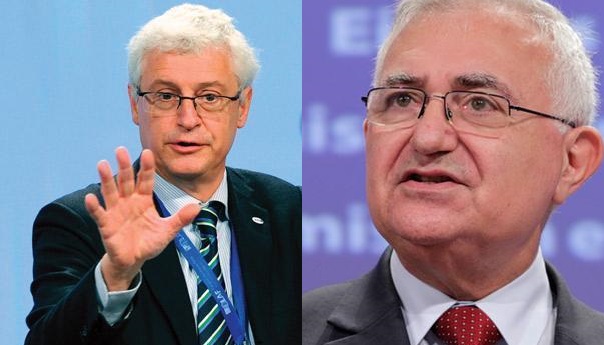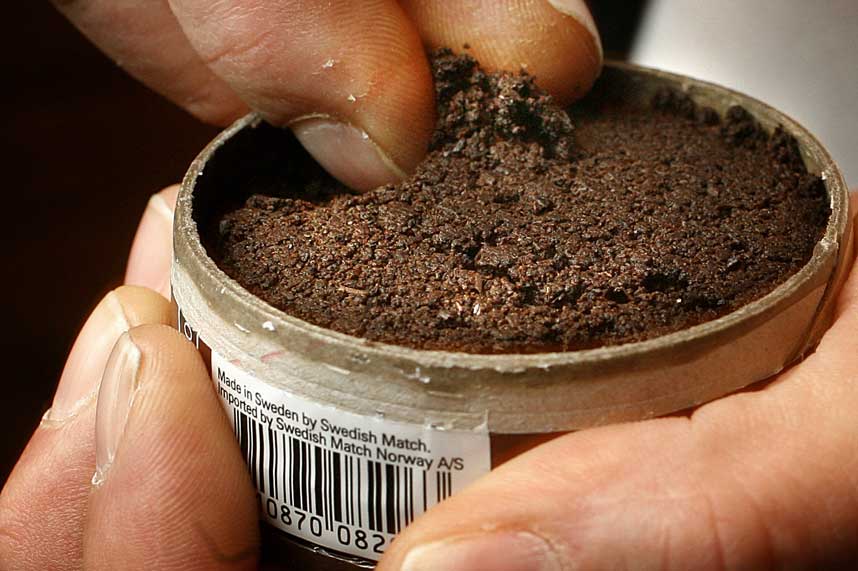Malta’s former European Commissioner John Dalli has been waiting a long time, since October 2012 to be precise, for European Commission President Jose Manuel Barroso to fully answer for his decision to abruptly dismiss him from the European Commission – and that day will in all likelihood arrive tomorrow or on Tuesday.
Tomorrow, Mr Dalli and his legal team will confront Mr Barroso before the European Court of Justice, where Mr Dalli has brought his complaint over the circumstances leading to his dismissal from the European Commission on 16 October, 2012.
Contacted yesterday, Mr Dalli said that while the case, being heard tomorrow and Tuesday, is not necessarily about the OLAF report that led to his resignation but, rather, the circumstances of his abrupt dismissal from the European Commission, he will seek to make the point that “… the Kessler [OLAF] report is a fraud and that Barroso knew the report was a fraud”.
He also alleged that facts have strongly suggested collusion between the Barroso and the Maltese government of the time.

He also said that claims made by Silvio Zammit this week should be investigated by the police. Earlier this week, Mr Zammit – the person accused of trading in influence on behalf of Mr Dalli – said that he had been offered a presidential pardon by a lawyer ‘close to the Nationalist Party’ in return for spilling the beans on Mr Dalli’s dealings with tobacco lobbies.
Mr Zammit said this week, however, that there were no beans to be spilled in the first place.
Mr Zammit’s revelation, Mr Dalli said, “…means there was a direct link between Barroso and the Maltese government at the time. This was a planned attack that suited both parties: the Maltese government because of its political considerations, and Barroso because of the tobacco lobbies.”
He added, “These are arrogant and manipulative people. More will come out, not just from the court case before the European Court of Justice, but also because of new information that I am receiving.”
Asked whether he feels the moment of truth is now approaching, Mr Dalli said, “I hope so.”

(Olaf chief Giovanni Kessler and John Dalli)
Tomorrow’s commencement of the high profile case is expected to hear testimony from Mr Barroso and Mr Dalli about what exactly happened on 16 October 2012.
Dalli still insists he was forced to resign
In an interview with this newspaper just days after his dismissal, Mr Dalli alleged that it was his efforts to introduce new EU tobacco legislation, which stood to cost the powerful tobacco industry billions of euros, was behind what he describes as his “forced resignation” from the European Commission.
“I was made to resign in order to stop the tobacco directive,” Mr Dalli said at the time – words that he stands by to this day. “They simply wanted this conclusion and, one way or another, they got it.”
Mr Dalli’s resignation came in the wake of a report by OLAF, the EU’s anti-fraud agency, which presented a number of somewhat vague accusations against Mr Dalli and a certain Silvio Zammit, who is said to have requested snus producer Swedish Match €60 million to have Mr Dalli’s upcoming legislation changed in favour of the tobacco industry, charges that Mr Dalli vehemently denies.

(Snus)
The tobacco industry is on the top of Mr Dalli’s list of suspects when it comes to what he calls his “entrapment”.
Mr Dalli, who insists on his innocence and who vows to fight tooth and nail against what he believes was an unfair and orchestrated plot against him and the tobacco directive he spearheaded, said about the way he was asked to resign in October 2012:
“He (Barroso) had two pages of the report in front of him, the cover letter with OLAF’s conclusions. I asked to see it and he said ‘No, it is confidential’. I said I needed 24 hours to put my mind in order, to reflect and to seek legal advice. But he said ‘No, you have 30 minutes’.
“So what he basically did was that he forced me into resigning.”

The proceedings
Tomorrow, Mr Barroso is to answer judges’ questions as a witness tomorrow (7 July), before lawyers from both sides give their arguments on Tuesday.
Barroso’s head of Cabinet, Johannes Laitenberger, will be at his side in Luxembourg, as well as the head of the Commission’s legal services, Luis Romero Requena. Mr Dalli’s former head of Cabinet, Joanna Darmanin, and former spokesperson, Frederic Vincent, will also attend.
Mr Dalli wants the Court to annul Barroso’s request for his resignation on grounds he had secret contacts with Swedish Match, a snus tobacco company.
He also wants the Commission to pay a symbolic €1 in damages for the “non financial” harm he has suffered, and compensation for his loss of earnings as a commissioner.
But the Barroso side insists there had been no request for Dalli’s resignation and that he stepped down of his own accord. But Mr Dalli maintains his innocence in the campaign by industry to water down the EU’s Tobacco Products Directive.
The scandal led to accusations of unlawful meetings between Barroso’s inner circle and tobacco lobbyists, as well as mismanagement of inquiries by the head of the EU’s anti-fraud office, OLAF.
But Mr Dalli is not the only person who refuses to let the matter rest.

(European Ombudsman, Emily O’Reilly)
The European Ombudsman, Emily O’Reilly, late last month also opened a probe into allegations that the Commission failed to disclose meetings with tobacco lobbyists in contravention of United Nations rules.
As a signatory of the World Health Organisation’s Framework Convention on Tobacco Control, the EU is required to reveal all meetings with the tobacco industry.
The convention’s preamble says that all parties “need to be alert to any efforts by the tobacco industry to undermine or subvert tobacco control efforts and the need to be informed of activities of the tobacco industry that have a negative impact on tobacco control efforts”.
O’Reilly’s probe stems from a complaint in May by the protransparency group Corporate Europe Observatory (CEO), which says top commission officials from the secretariat general and members of Barroso’s Cabinet held 14 undisclosed meetings.
The contested meetings include representatives from tobacco giant Philip Morris International, Swedish Match, and an unregistered lobbyist working for the European Smokeless Tobacco Council.
The Commission says it complies with the UN rules and is transparent.
It says it disclosed all its meetings that took place in 2011 and 2012 between the tobacco industry and its directorate for health and consumer affairs (DG Sanco). It also says it provided information to the European Parliament on contacts with the tobacco industry.
“It is therefore wrong to speak about undisclosed meetings,” said Commission spokesperson Pia Hansen.
Barroso in a ‘big mess’ if Dalli proved right - Green MEPs
In a joint statement on Friday, Green MEPs José Bové and Bart Staes, who have been lobbying for transparency on the case virtually since its inception, said, “If Dalli is proved right by the EJC, then Barroso and others are in a real big mess: the claim that this whole affair was a set-up to get rid of Dalli would gain credibility and the EC and antifraud unit OLAF would then have to explain why all this was done in the strange way it was. Given the political importance of this case, we will both be present at the EJC in Luxemburg.”
They point out how Mr Dalli also claimed that his rights were violated and he never signed any paper confirming his dismissal, and that his explanations and defence “have been consistent from the start”.
They added, “Meanwhile in the past 18 months, leading figures in the EU institutions, including newly elected EP-president Schultz, have been trying to cover up this scandal by withholding crucial reports and documents from parliamentary scrutiny, under the pretext of a judicial inquiry in Malta. “Dalli says he was framed and, given all the evidence that we saw so far, we are afraid that he is right. If this is the case, this would mean a further blow to the credibility of the European Institutions.”
MEP Staes commented: “A mere four months before his presidency ends, Barroso has to testify for the first time in public why he dismissed Dalli so lightheartedly. Since this mindboggling event on 16 October 2012 we have dug into this case. And we became more and more convinced that this affair smells funny, which could explain why EU officials have tried so hard to push things under the carpet and limit transparency. The truth might well be that Dalli had one or two illegitimate meetings with tobacco lobbyists, but also that the EC-hotshots in the Barosso gang that fired him for this had even more undisclosed meetings with lobbyists.”
Last week, the EU ombudsman agreed with a complaint of transparency group Corporate Europe Observatory about not “implementing the rules of Article 5(3) of the WHO Framework Convention on Tobacco Control and the accompanying guidelines”. In violation of this protocol, they said, “Barroso and Co. met several times with tobacco lobbyists without disclosing it”.
The EU Ombudsman also gave the EC until 31 July to disclose the initial letter from Swedish Match sent to the EC’s secretarygeneral Catherine Day on 14 May 2012, in which it reported allegations of bribery against former commissioner John Dalli. The EC turned down a freedom of information request filed by Oliver Hoedeman from Corporate Europe Observatory, and the EU Ombudsman disagreed with the EC arguments to keep the letter secret.
MEP Staes added: “We would not rule out that the dismissal of Dalli was a set-up with the agenda to delay or derail the upcoming Tobacco Products Directive (TPD). The tobacco industry demonstrated an aggressive and unprecedented lobby-offensive to stop this legislation initiated by Dalli. Just this week Philip Morris International announced it is to take the EC to court over this new legislation.”